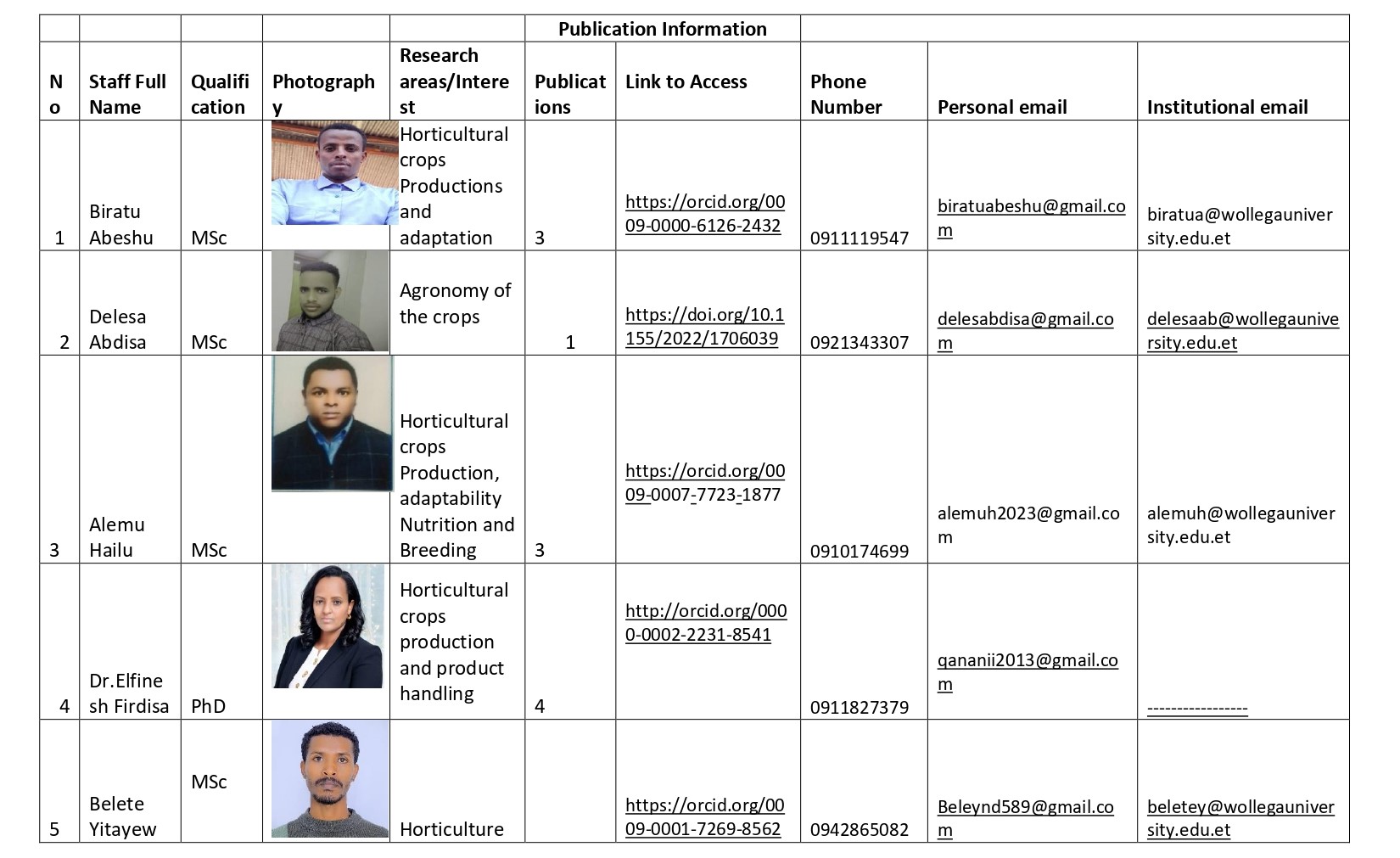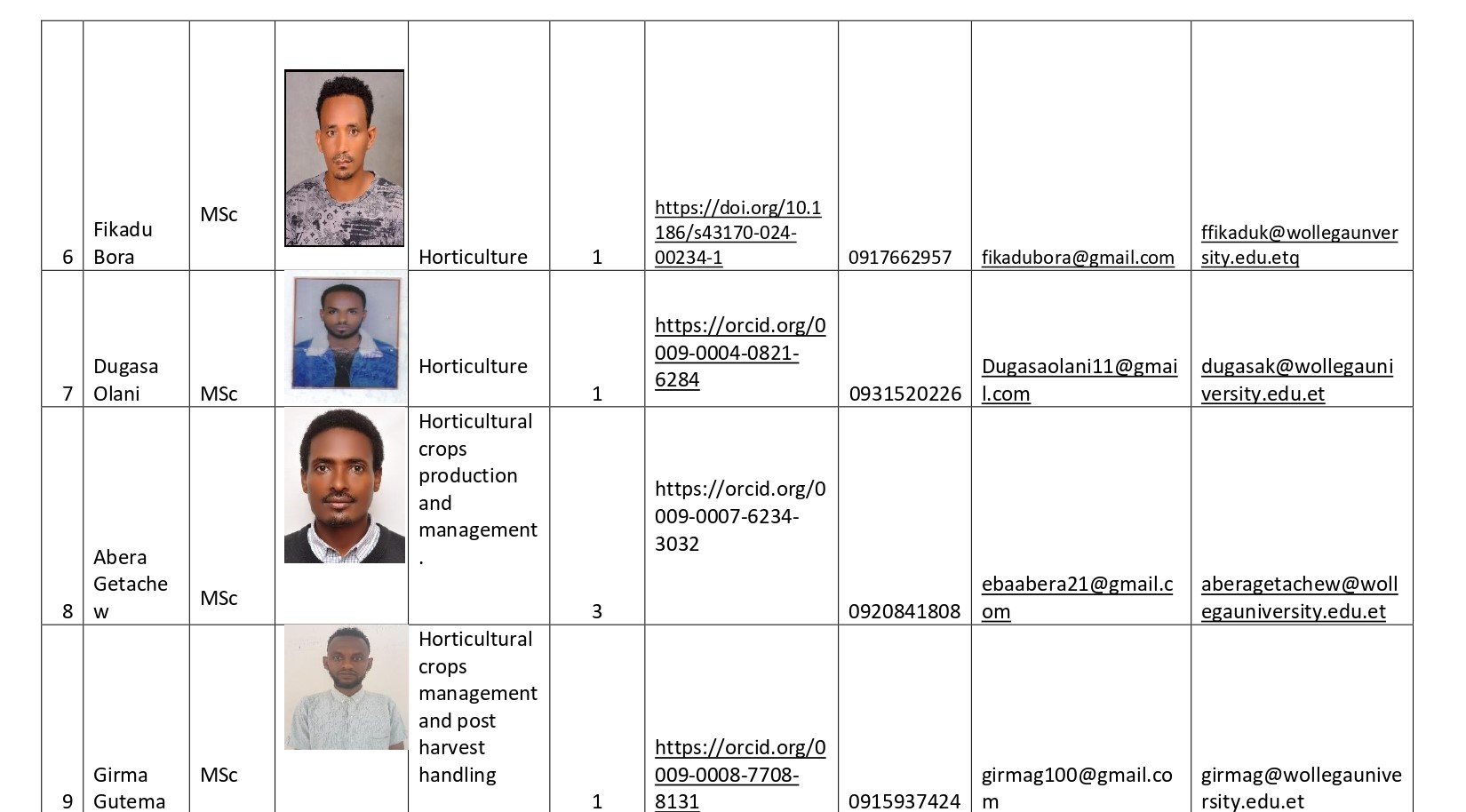|
Background information
The Plant Science Program of Wollega University, located in Shambu Campus, Oromia Region, Ethiopia, offers a plant science program within its College (Faculty) of Agriculture. The Department of Plant Science was launched on the Nekemte Campus in 2000 E.C. It is one of the oldest departments in the history of the university. Currently, the program is running the teaching and learning process in Bachelor of Science, Master of Science, and PhD programs in the Shambu Campus, Oromia, Ethiopia, including research and community service.
Program Overview
The country has diverse physical and social environments and a great diversity of tropical, subtropical, and temperate climates, soil, and vegetation. The variability in environmental factors has an important implication on the diversity of plants in the country. The elevations provide for temperature differences for growing several kinds of crops. A wide variety of crops are found growing in various parts of the country. In the highlands, where cool temperatures prevail, common temperate crops are grown. Many tropical and subtropical crops are also grown in low to mid altitudes of the country. The country is a center of origin and/or diversity for many plant species, including several cultivated crops, such as coffee, sorghum," teff", durum wheat, finger millet, barley, “noug”, safflower, sesame, castor bean, faba bean, etc. Current crop production and productivity of the country in general can be reversed and increased through the use of improved production technologies, reduction of pre- and post-harvest crop losses, and efficient use and proper management of natural resources. This can be attained if and only if a large number of well-trained and qualified human resources are involved in all processes of technology generation, dissemination, and development.
§ To be a leading center of excellence in plant sciences, driving sustainable agricultural development, food security, and environmental conservation in Ethiopia and beyond.
Mission of Program
§ To provide high-quality education, research, and community services in plant sciences.
§ To produce competent graduates equipped with modern agricultural knowledge, innovation, and ethical values.
§ To address regional and national challenges in agriculture through cutting-edge research and technology transfer.
Program objectives
The ultimate aim of the program is to improve crop production and productivity and ensure sustainable use of natural resources in the country, thereby contributing to improvement of the livelihood of the nation. Such a program seeks to produce competent professionals who are equipped with both academic and practical knowledge and skills in managing all phases of crop production and management and conducting various research and extension activities that can contribute to the development of the country and ensure food security and self-sufficiency.
The specific objectives of the program are:
§ To produce adequate and well-trained manpower that will regionally, nationally, and internationally contribute to the generation, dissemination, and adoption of improved plant production and protection technologies;
§ To provide students with basic and applied knowledge of natural resources (soils, agricultural waters, and forestry) and field, horticultural, and industrial crop production and protection;
§ To enable the students to understand and comprehend problems in crop production and seek solutions through exposure to research, extension, and management
§ To enable the students to gain the skill and knowledge of proper management and conservation of natural resources and protecting the environment
§ To provide the students with the knowledge of handling plants and their products
§ To integrate training-research-extension to increase the efficiency of plant technology generation, dissemination, and adoption by end-users and, thereby, contribute to the intended regional and national development
§ To enable students to conduct relevant research in plant science on problems that affect the region and the nation; and
§ To provide professional services to the community and policy makers at large.
Goals of Program
§ Produce graduates capable of advancing Ethiopia’s agricultural productivity and sustainability.
§ Develop climate-resilient farming practices and crop varieties suited to local conditions.
§ Strengthen linkages between academia, industry, and rural communities.
§ Promote agro ecological practices to conserve biodiversity and natural resources.
Plant Science Department Program
The program focuses on agricultural sciences, including areas such as plant breeding, crop protection, soil management, irrigation systems, and sustainable agriculture practices.
Undergraduate Program
Degree Levels Offered
o Bachelor of Science (B.Sc.) Degree in Plant Science: A four-year undergraduate program focusing on crop production, genetics, soil science, pest management, and sustainable agriculture.
Postgraduate Program
- Master of Science (M.Sc.) Degree in Agronomy and Plant Breeding.
- PhD in Plant Breeding.
Specializations and Focus Areas
The Plant Science program typically emphasizes the following sub-disciplines:
Agronomy:
§ Crop production systems, soil fertility management, and sustainable farming practices.
§ Focus on staple crops (e.g., teff, maize, sorghum) and cash crops (coffee, oilseeds).
Plant Breeding & Genetics:
§ Development of high-yielding, disease-resistant, and climate-resilient crop varieties.
§ Use of conventional and modern biotechnological tools.
Plant Pathology, Agricultural Entomology & Pest Management:
§ Study of plant diseases, insect pests, and integrated pest management (IPM) strategies.
§ Emphasis on bio control and reducing pesticide reliance.
Soil Science & Plant Nutrition:
§ Soil conservation, fertility enhancement, and sustainable nutrient management.
§ Analysis of soil-plant interactions for improved productivity.
Horticulture:
§ Fruit, vegetable, and ornamental plant production.
§ Post-harvest management and value-chain development.
Seed Science & Technology:
§ Seed production, quality control, and certification systems.
Research and Facilities
Research Focus Areas
The Plant Science Department prioritizes applied and participatory research aligned on;
1. Crop Improvement:
o Breeding for drought tolerance, disease resistance, and high-yielding varieties (e.g., maize, teff, sorghum, coffee).
2. Climate-Smart Agriculture:
o Developing agro ecological practices to mitigate climate impacts (e.g., conservation agriculture, agroforestry).
3. Soil Health & Fertility:
o Sustainable soil management, erosion control, and organic fertilizer development.
4. Integrated Pest Management (IPM):
o Biological control, pest-resistant crops, and reduced chemical pesticide use.
5. Seed Systems:
o Enhancing seed production, storage, and distribution for smallholder farmers.
6. Biodiversity Conservation:
o Preserving indigenous crop varieties and promoting native plant species.
Key Research Facilities
1. Laboratory:
o With well-equipped materials.
2. Greenhouses & Nurseries:
o Controlled environments for seedling production, hybrid trials, and pathogen studies.
3. Experimental Farms:
o Field sites (e.g., Shambu, Gitilo and Hareto) for agronomic trials, crop rotation studies, and organic farming demonstrations.
Career Opportunities
Graduates of the Department of Plant Sciences program are well equipped with the knowledge, skills, and attitude needed to:
Ø Promote and disseminate agricultural technology through training of farmers and extension workers
Ø Identify and analyze problems related to plant sciences and devise appropriate solutions
Ø Plan, implement, monitor and evaluate programs/projects related to plant production, protection and management in sustainable base
Ø Involve in research undertakings in the areas of crop production, crop protection, and natural resources
Ø Design and conduct trainings for specialized skill and knowledge in areas of plant sciences
Ø Assist policy makers and development practitioners on appropriate plant sciences and natural resources management techniques
Ø Generate self-employment, establish and mange private enterprises related to their profession and related fields.
Involve in consultancy and advisory services in the field of plant sciences.
|
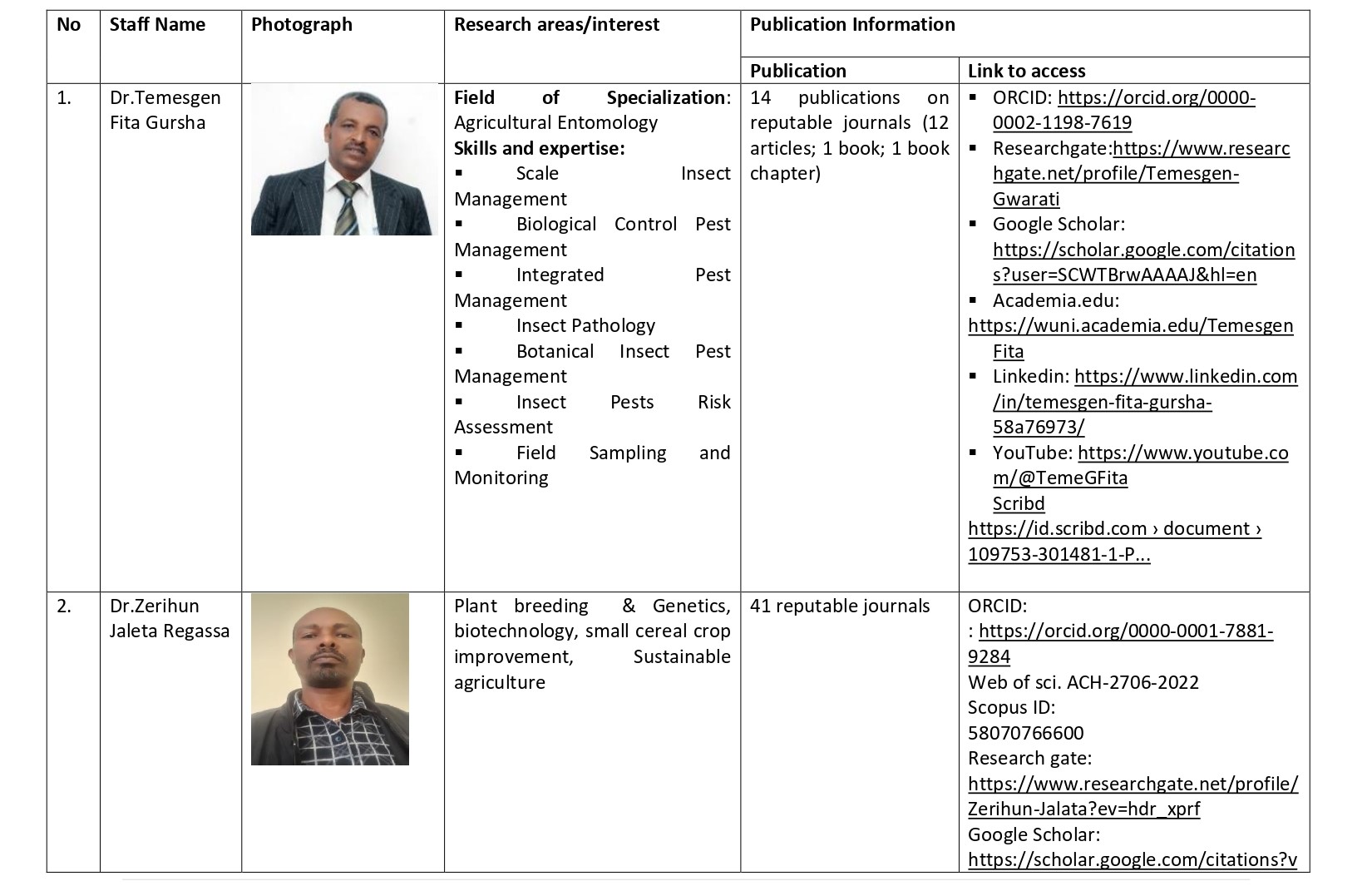
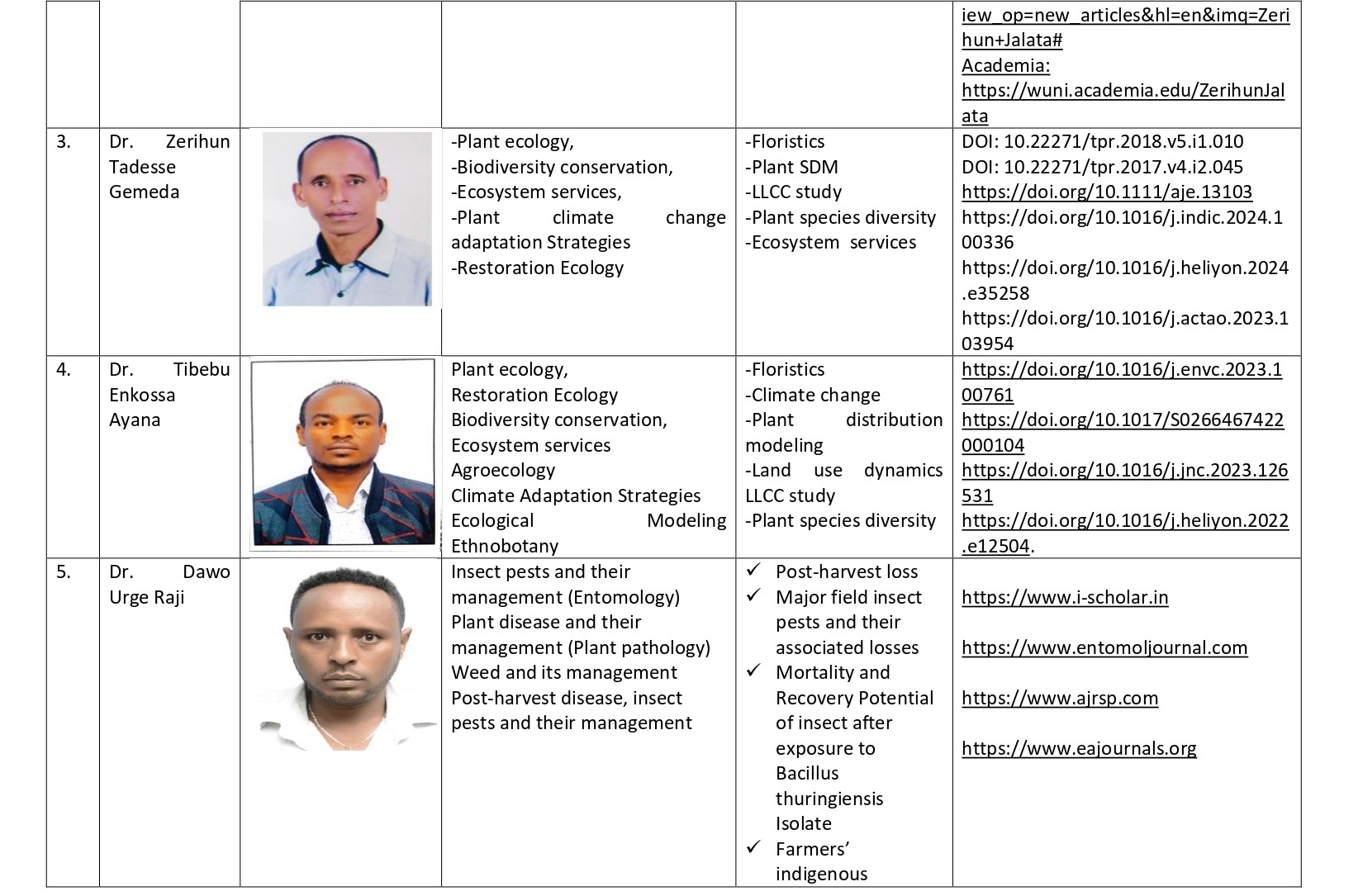
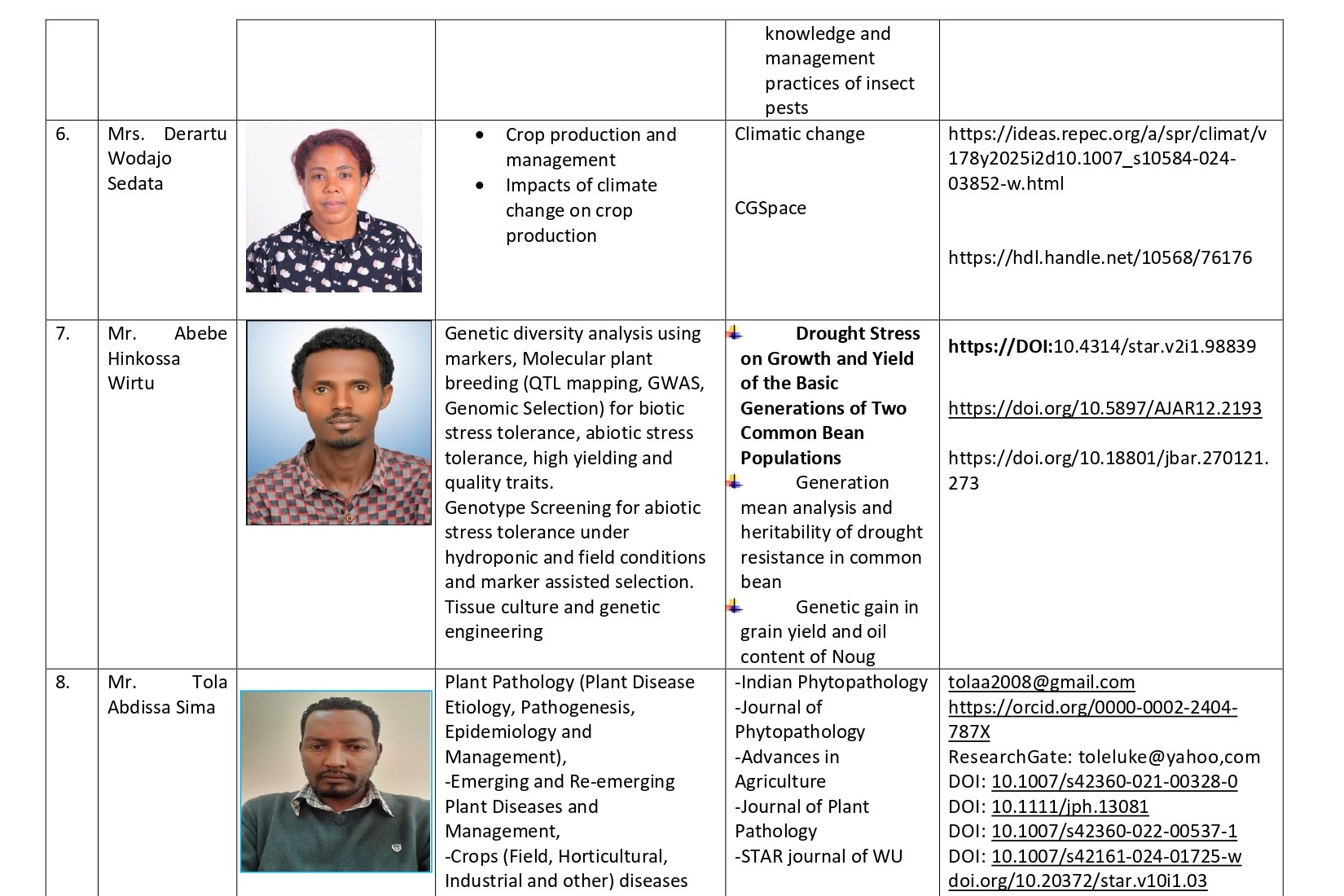
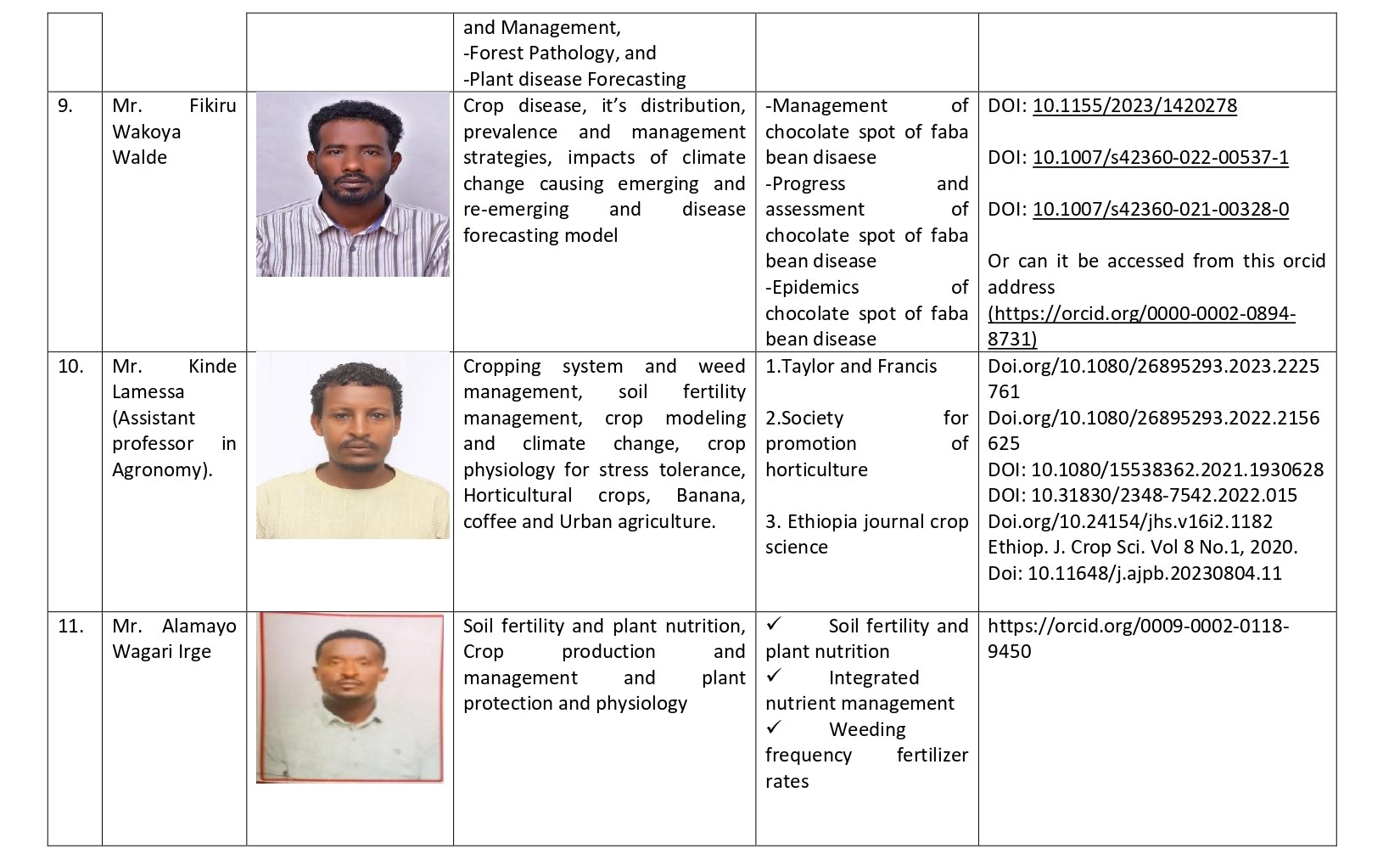
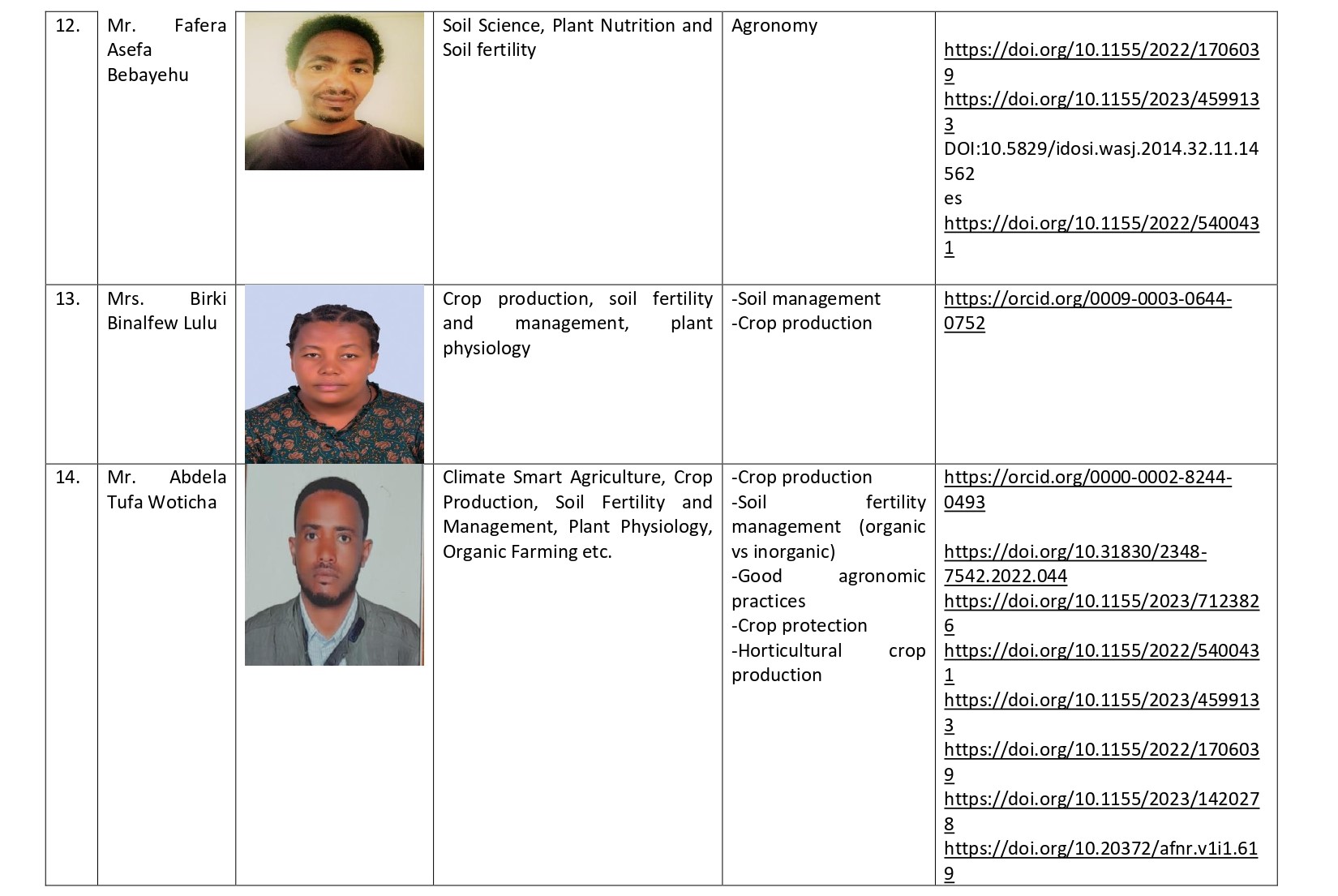
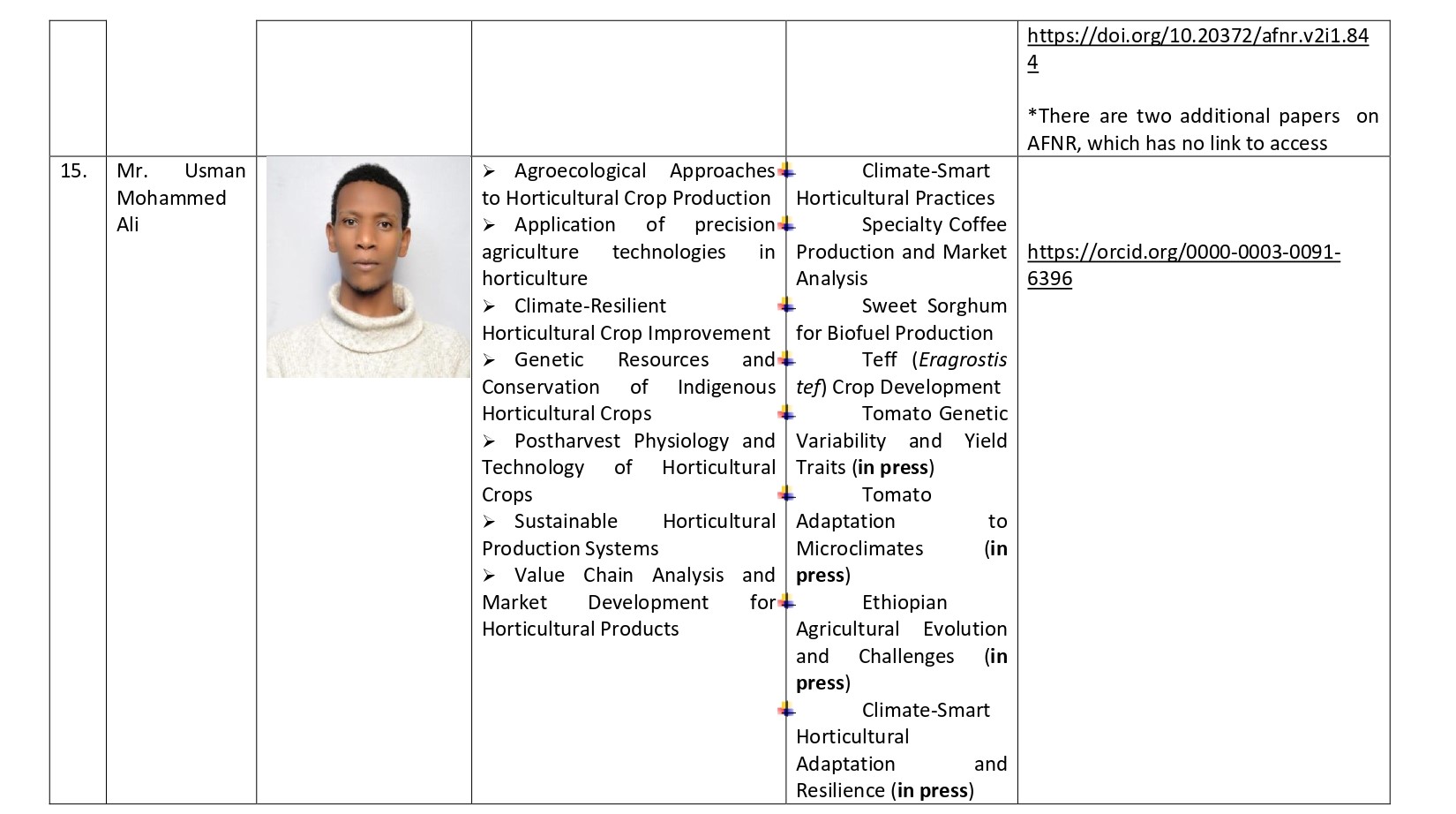
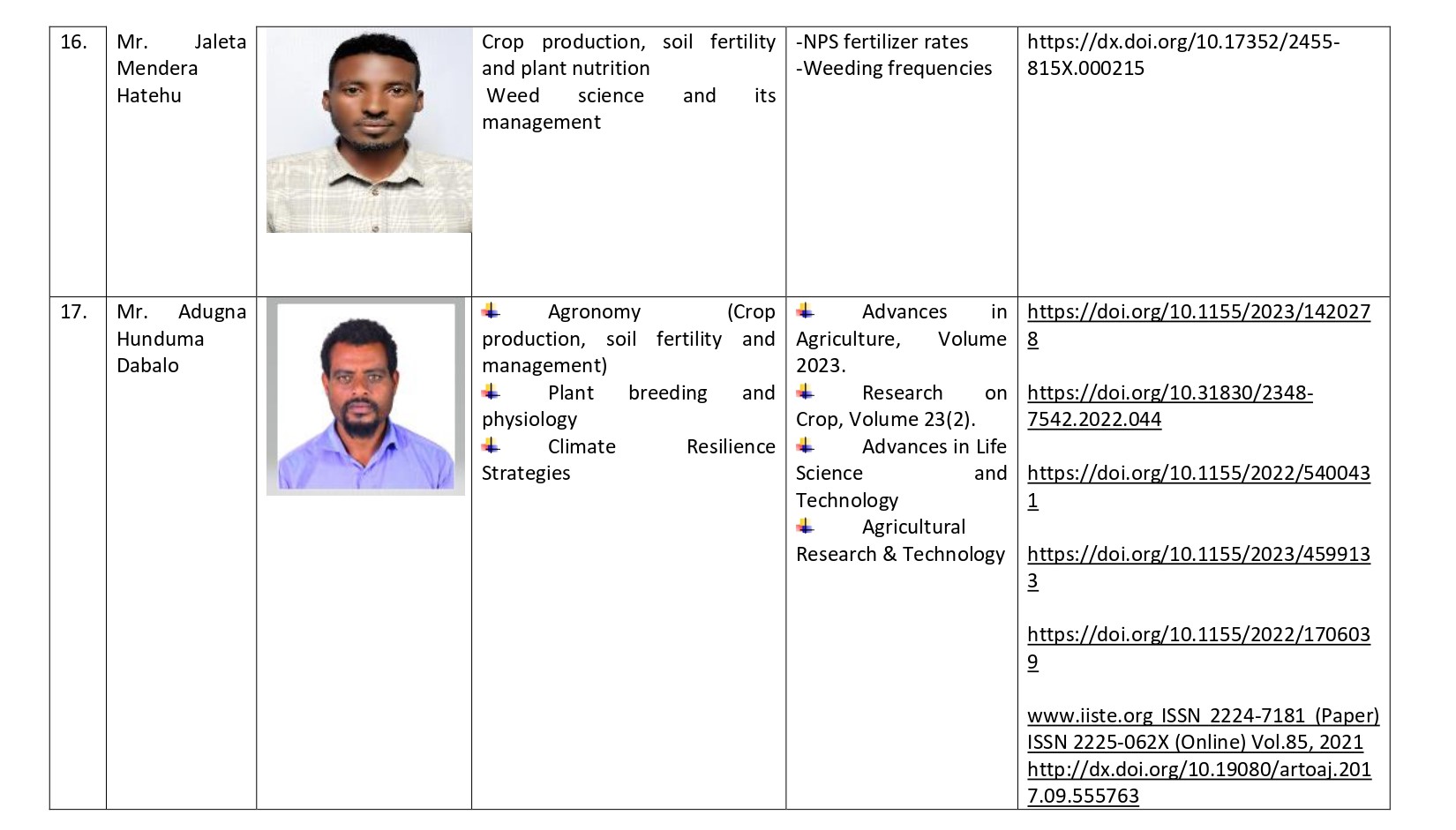
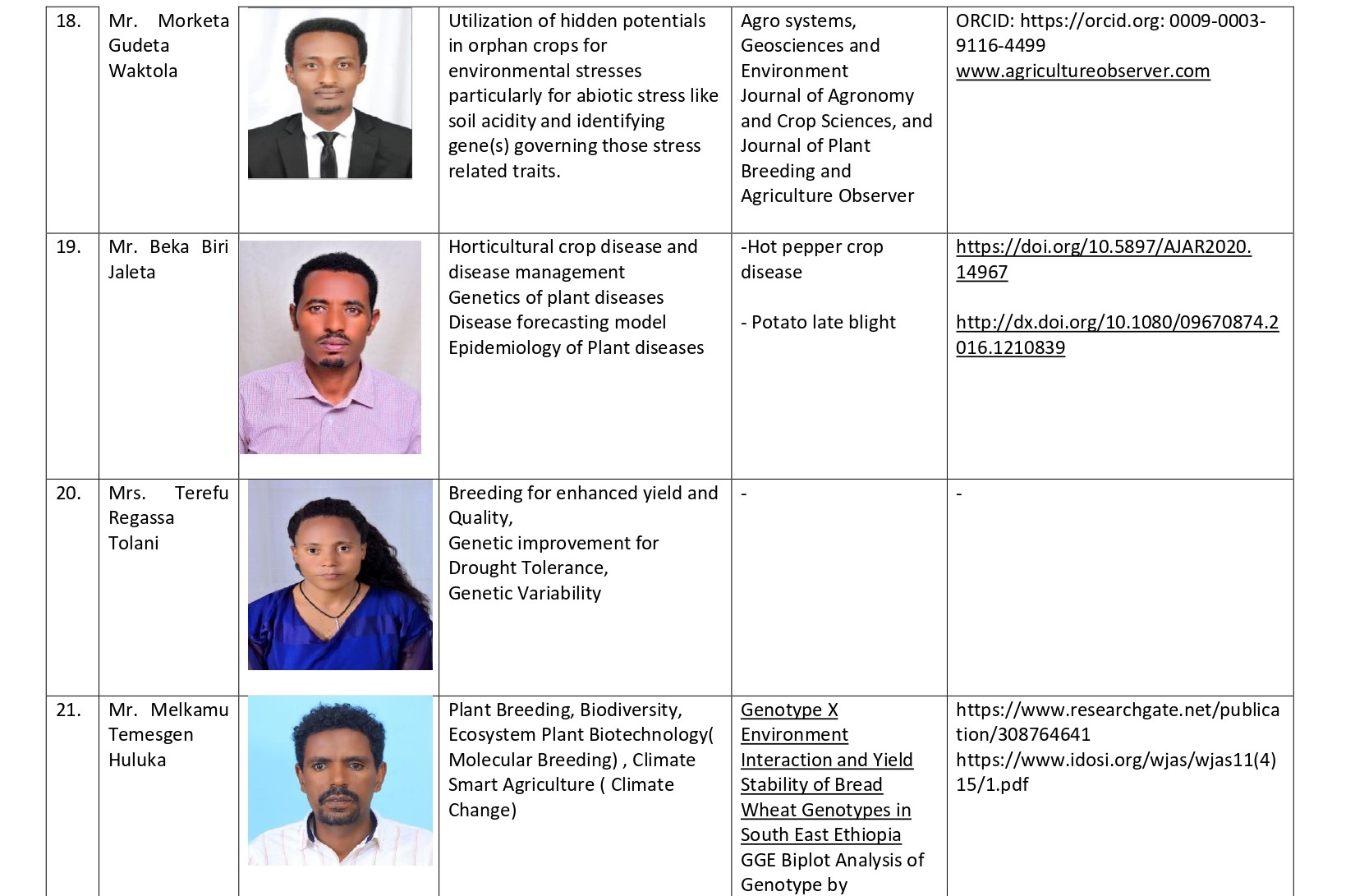
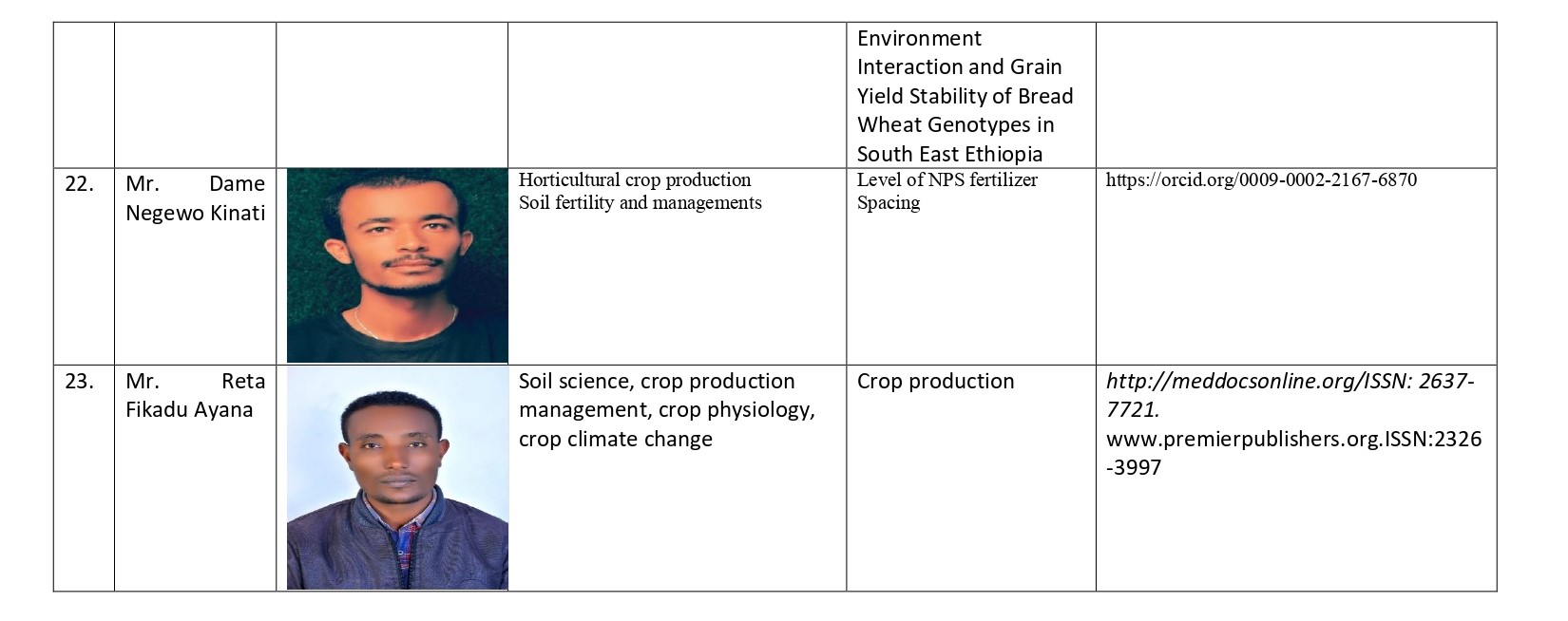

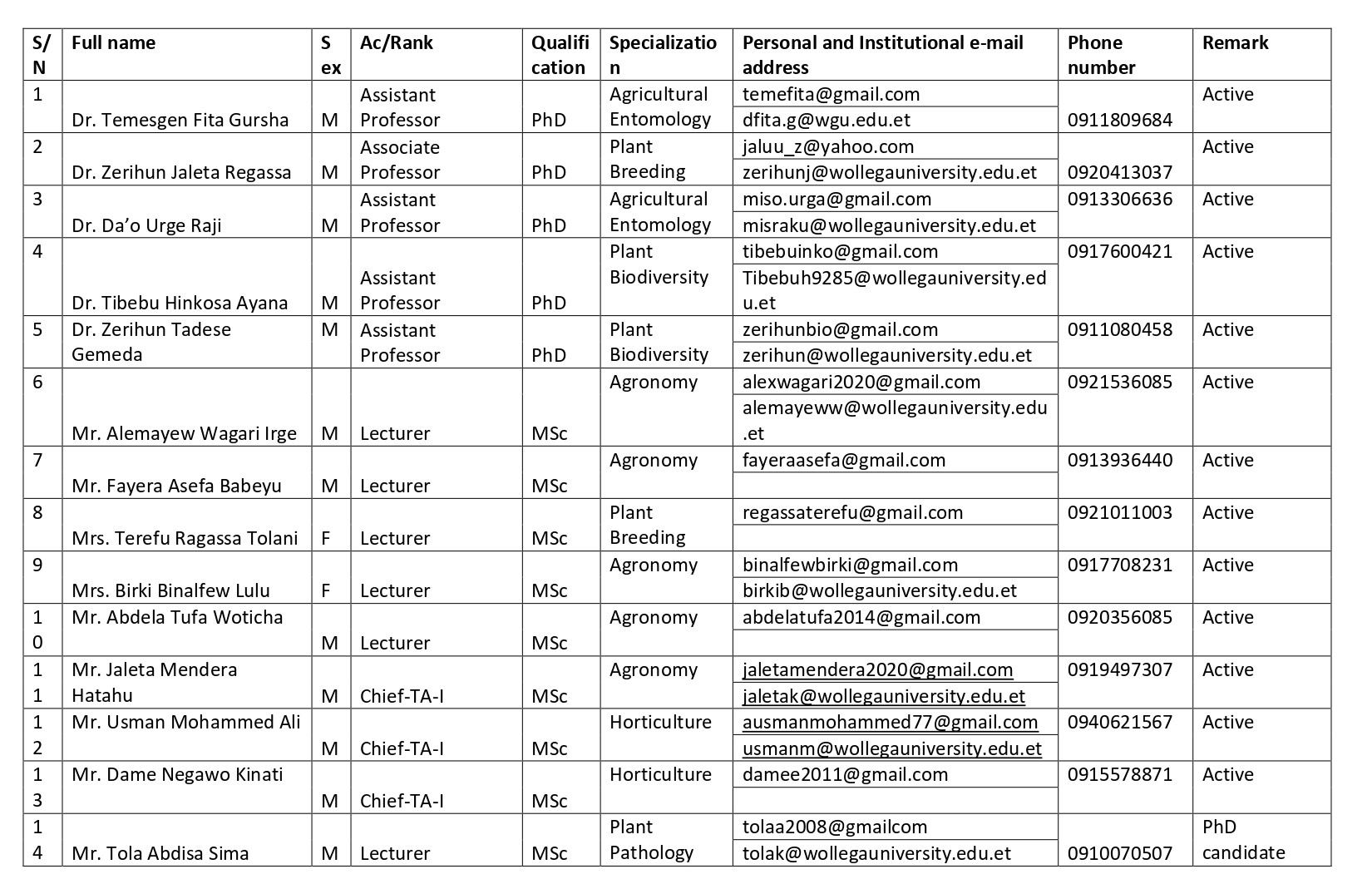
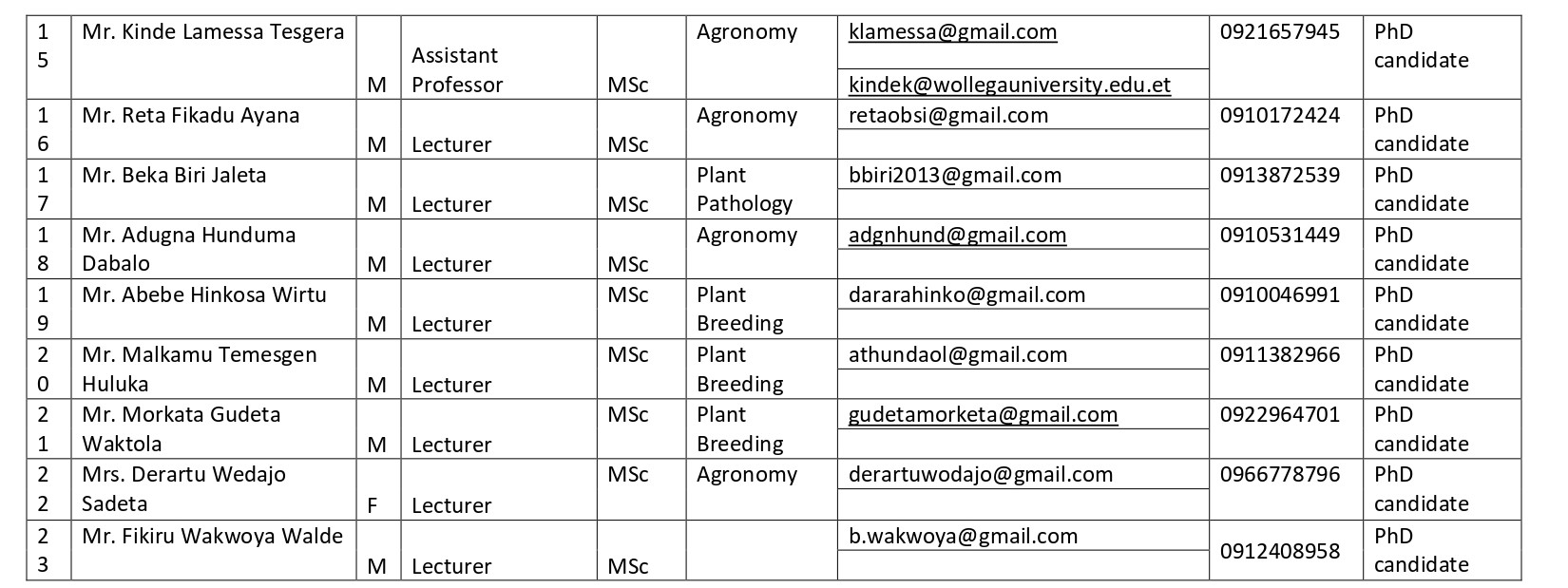
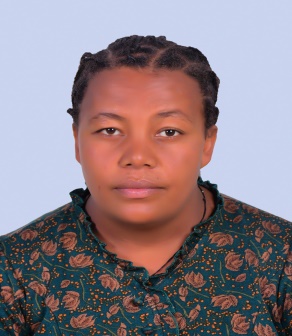 Mrs. Birki Binalfew Lulu (B.Sc. in Plant Science and M.Sc. in Agronomy) is one of the Plant Science Department Staff and currently serve as Department Head.
Mrs. Birki Binalfew Lulu (B.Sc. in Plant Science and M.Sc. in Agronomy) is one of the Plant Science Department Staff and currently serve as Department Head.